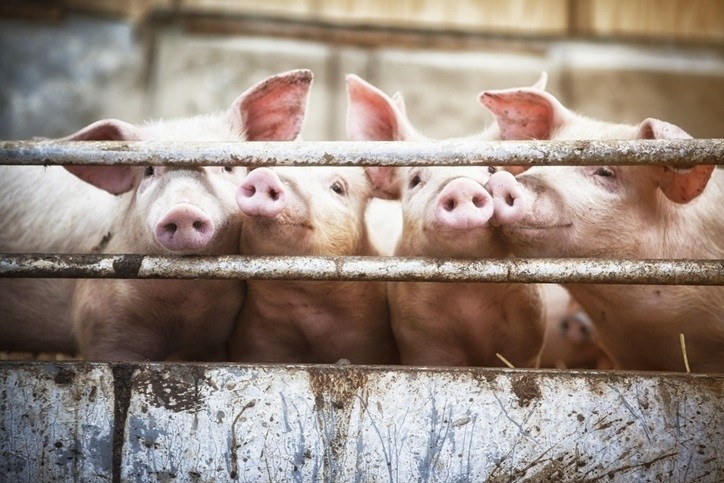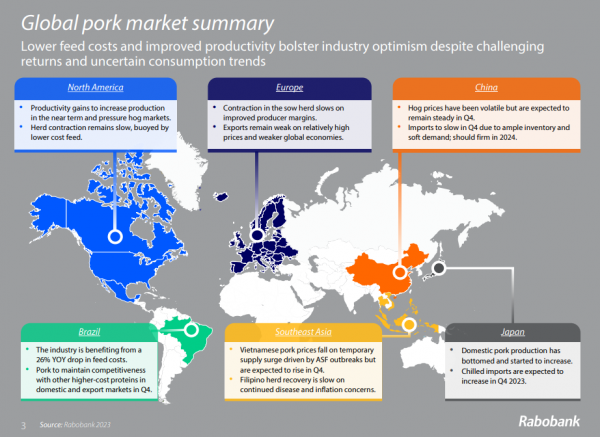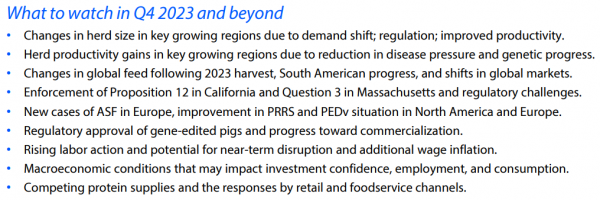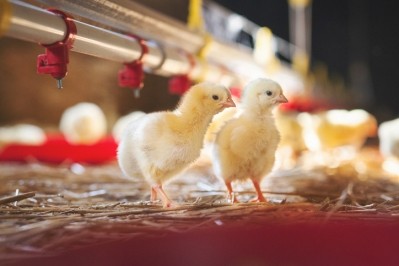Feed prices improve, though uncertainties remain for global pork industry

Corn and soybean prices moved lower in the third quarter of 2023, after a good North American harvest helped rebuild stocks and expectations for a large South American crop emerged, according to Rabobank’s pork quarterly Q4 2024.
While better, oilseed inventories remain below pre-COVID-19 levels and leave little margin for error. Feed costs are now down 20% to 30% year-on-year in most geographies. While costs vary regionally, corn costs are down more sharply than soybean meal and feed wheat.
“With the emergence of an El Niño pattern, the focus will shift to potential impacts on the South American growing season,” said Christine McCracken, senior analyst, animal protein at Rabobank. “And while grain and meal prices are expected to remain lower, other rising costs – including labor, insurance, and financing – remain high for most producers.”
The analyst sees steady gains in production
While disease pressure is still an issue in some regions, overall swine herd health has improved, she reports. “A renewed focus on cost reduction – given inflationary pressures resulting in the elimination of less productive operations – is also contributing to a rebound in production per sow,” said McCracken.
Stable consumption trends
Consumers are adjusting to inflationary pressures, yet pork remains a dietary staple and overall consumption trends remain stable. “With consumers still cautious, particularly in light of rising geopolitical uncertainty, we expect an ongoing focus on reducing spending,” said McCracken. “Pork consumption should benefit from the high cost of competing proteins and more consumers cooking at home.”
But growing conflict in the Middle East adds further uncertainty to energy and financial markets and could influence consumers through the end of 2023 and in early 2024, even as the underlying economic environment continues to recover.
Global trade slows
Pork trade slowed in July and August versus year-ago levels, as costly EU pork exports and relatively high frozen pork inventories in many key importing countries weighed on demand, reads the report.
Global pork importers remain cautious given disappointing holiday demand, currency volatility, and increasing geopolitical risk.
McCracken added: “In the final quarter of 2023, we expect global trade to remain slow given large inventories, relatively high domestic production, and low pork prices in key importing regions. Rising EU pork prices may also limit export volumes.”
















